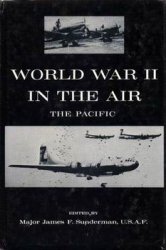Across the European continent, nations were coming together and empires falling apart. In Eastern Europe, Byzantium—permanently crippled by the Crusades—limped along, while the city-states of Russia, led by Novgorod, gradually gathered strength. Greatest of Novgorod's leaders was Alexander Nevsky (c. 1220-1263), a prince who repelled invasions by the Swedes in 1240 and the Teutonic knights in 1242. His defeat of the knights, in a battle on a frozen lake, is one of the most celebrated events of Russian history.
Alexander did not act so decisively against a new breed of invaders

Filmmaker Sergei Eisenstein immortalized Russian ruler Alexander Nevsky in his movie of the same name, made in 1938. Reproduced by permission of the Kobal Collection.
From the east, the nomadic Mongols of Central Asia. By 1241, they had swarmed over Russia, the Ukraine, Poland, and Hungary, and had reached the gates of Vienna, Austria's capital. Alexander saw the Mongols as protection from enemies to the west, and submitted to their rule. Upon his death, he made his son Daniel ruler over Moscow, which thenceforth became known as the principality of Muscovy. During the centuries that followed, the Mongols would rule Russia until Muscovy became powerful enough to overthrow them; in the process, the Russian sys-
Tem would become characterized by highly centralized authority, with a prince whose subjects did not dare question his power.
Quite the opposite thing was happening in England, where the signing of the Magna Carta in 1215 led to greater power for the nobility over the king—and ultimately to greater power for the people over both. In other countries, too, the central authority lost power, but not by such orderly means as in England. Italy remained a confused collection of warring states, and Germany began to fall apart when the Hohenstaufens lost the imperial throne in 1254. In 1273, however, the election of Rudolf I (ruled 1273-91) as emperor established the powerful Hapsburg dynasty, destined to remain a factor in European politics until 1918.
The strongest nation in Western Europe was France, where a series of powerful kings increased the dominance of the royalty over all other forces in French life. Philip IV (the Fair; ruled 1285-1314) proved just how strong a French king could be when he went up against Pope Boniface VIII (BAHN-i-fus; ruled 1294-1303) and won. The conflict began when Philip's government established a tax to pay for a series of wars with England, and a group of Cistercians protested the tax. They appealed to Boniface for support, and Boniface ordered all French bishops to Rome so that he could review Philip's policies. Philip responded by supporting a group who kidnapped the pope.
Though Boniface was only held prisoner for a few days, the incident marked the end of the papal dominance over kings. Philip later arranged to have a pope who would do his bidding, Clement V (ruled 1305-14), placed on the throne. In 1309, Clement moved the papal seat from Rome to Avignon (AV-in-yawn) in southern France. This in turn sparked one of the greatest crises in the history of the Catholic Church, as Western Europe was divided between supporters of the Avignon papacy and those who submitted to a rival pope in Rome. The church would recover from this rift, but its power would never again be as great.




 World History
World History


![Road to Huertgen Forest In Hell [Illustrated Edition]](/uploads/posts/2015-05/1432477693_1428700369_00344902_medium.jpeg)






